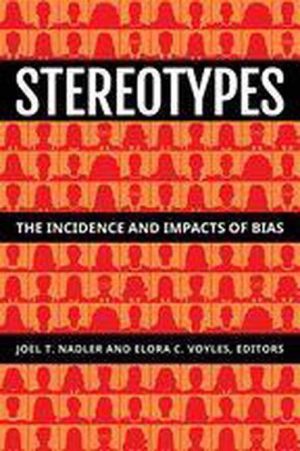articles
China Elevator Stories
Stereotypes: The Incidence and Impact of Bias
People carry negative and positive stereotypes, both can be harmful.
09/10/2024

Ruth Silbermayr
Author

Stereotypes – haven’t we all experienced them from time to time?
When we talk about stereotypes, we refer to how people perceive us, either consciously or unconsciously, based on preconceived notions. These ideas aren’t always congruent with reality.
In the book Stereotypes: The Incidence and Impact of Bias, Jessica L. Cundiff writes:
“Walter Lippmann (1922), a well-known journalist, is credited with coining the term ‘stereotype’ as it is used by social scientists today. He described stereotypes as the ‘pictures we carry around in our head’ of social groups that help us process and simplify our complex social world, but also function to rationalize the social hierarchy. Lippmann’s writings came at a time when historical and societal changes, including World War I, immigration patterns, and the Civil Rights Movement of the 1920s, prompted people to start viewing negative racial attitudes as a social problem rather than a natural response to inherent group differences. As a result, early conceptualizations defined stereotypes as negative, inflexible, and inaccurate characterizations of groups based on faulty reasoning. (…) Today, stereotypes are generally defined as overgeneralized beliefs about the members of a particular group.”
Stereotypes can be both negative or positive. While negative stereotypes are usually more damaging, positive stereotypes can also have negative real-life consequences.
Cundiff writes:
“Positive stereotypes also serve to keep marginalized groups in subordinate positions through flattery and a seemingly just, fair distribution of benefits.”
An example of this could be being hired because your boss liked your looks and used flattering words during working hours. However, you remained in a low position because he overlooked the true value you brought to the job – which was not your appearance, but your talent, for example.
We all have preconceived notions about others, and we all use them in daily life. This is simply human. However, some do this more than others, and some people may cause more harm when applying stereotypes than others.
According to Cundiff,
“stereotypes help us organize and simplify the complex social knowledge we encounter every day, saving us mental energy and enhancing cognitive efficiency so we can make quick decisions easily and effortlessly. On the other hand, these benefits come at a cost: stereotypes are error-prone, constraining, and can contribute to social inequality and discrimination.”
One stereotype I’ve experienced often is that I’m shy, not introverted. People who perpetuate this stereotype are usually extroverts, who then try to turn me into someone like them – an extrovert who is loud and social. Without truly understanding that introversion is a natural, inborn trait that isn’t considered strange by introverts like me, they assume that because I am quiet or don’t want to do certain things others enjoy (like being around people all the time, speaking in front of crowds, or engaging in meaningless small talk), I must be different and need to change.
Growing up seeing introversion as normal, I was shocked at how many people didn’t view it the same way, believing it was a trait that needed to be altered. They made me feel as though introversion was a sickness that needed to be cured, and that they, the extroverts, had the ‘pill’ to fix it.
According to Cundiff,
“… some features draw attention because they are rare. For instance, proportionally smaller groups are more distinctive than proportionally larger groups, making it more likely that members of the smaller group will be the target of stereotypes.”
I was bullied repeatedly for being an introvert by extroverts, who thought their extroversion was the norm, equating introversion with shyness rather than understanding it as a natural, unchanging trait. Shyness, of course, is viewed as something that should be changed, rather than something that can be accepted as normal.
Now, when introverts are stereotyped and seen as flawed, we must conclude that they are, in fact, a minority in a city such as Vienna. While introverts may face bullying in China as well, I’ve experienced the opposite: introversion seems more common and accepted in some regions of China, where it is treated as a normal personality trait that doesn’t require change.
Living in China as an introvert can be quite refreshing!
Women like me have also faced many stereotypes from men.
In Stereotypes: The Incidence and Impact of Bias, Amy L. Hillard writes:
“… the Ambivalent Sexism Inventory measures both hostile sexism (i.e., traditional, negative attitudes towards women) and benevolent sexism (i.e., a chivalrous attitude toward women, which seems more positive but is actually overprotective). These two forms of sexism function together to reinforce the status quo by punishing women acting outside their traditional gender roles with hostile sexism and rewarding women acting within their traditional role with benevolent sexism. These forms of sexism thus reflect beliefs about the traits ‘appropriate’ for women and guide behavior toward women. For example, benevolent sexism reflects the belief that women are pure and wonderful but in need of protection, which results in paternalistic behaviors, whereas hostile sexism is related to aggression and other behaviors that reinforce male dominance (Connor, Glick & Fiske, 2017). (…) Gender roles provide the basis for gender stereotypes, and both roles and stereotypes are cognitive components of sexism. Research suggests that prescriptive gender roles and stereotypes are associated with discriminatory behavior.”
The German singer I used to date, for instance, often displayed benevolent sexism in the beginning, while the incel who stalked me for several years demonstrated hostile sexism. It’s safe to assume that many incels exhibit this behavior, and it’s no wonder women don’t want to associate with them when this is how they view women.
Being forced to spend time with someone who holds numerous stereotypes about you—stereotypes that don’t align with reality—is never pleasant. You find yourself repeatedly explaining, trying to prove that you are not the stereotype they believe you to be, but something entirely different.
Have you ever encountered stereotypes?